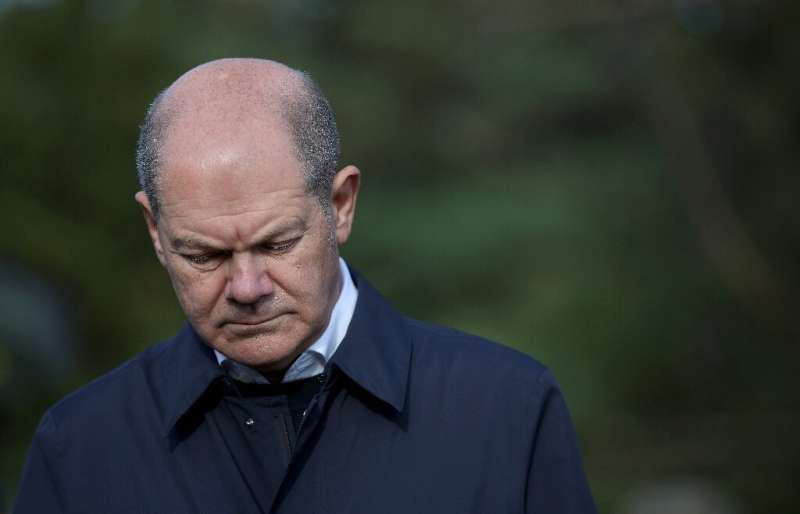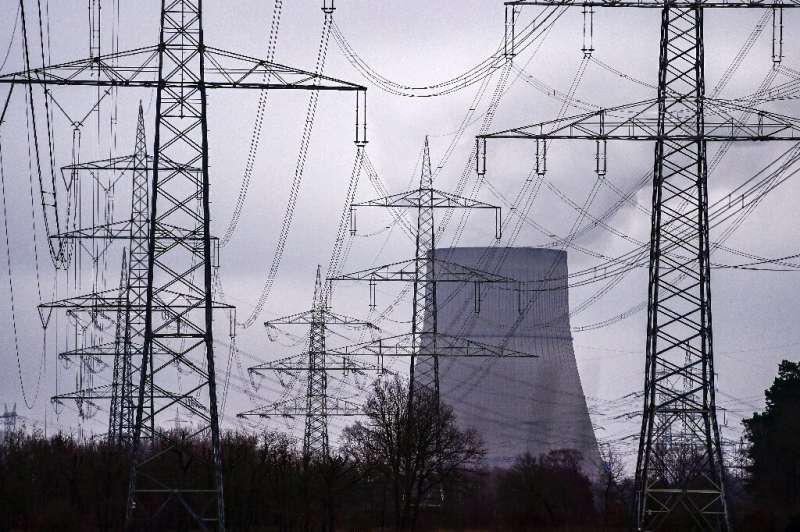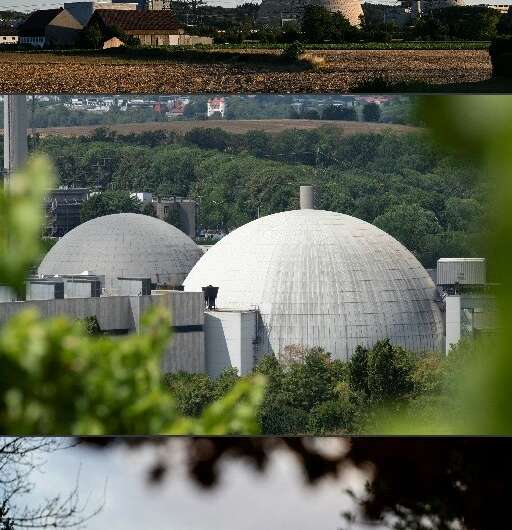Scholz extends life of Germany’s remaining nuclear plants

Chancellor Olaf Scholz on Monday ordered all three of Germany’s remaining nuclear power plants to stay operational until mid-April, breaking an impasse that had caused a rift among his coalition partners as an energy crisis looms.
Germany had initially planned to exit nuclear power by the end of the year, but Russia’s war in Ukraine and skyrocketing power prices since then have forced a rethink.
“The legal basis will be created to allow the operation of the nuclear power plants Isar 2, Neckarwestheim 2 and Emsland beyond December 31, 2022 until April 15, 2023,” Scholz said in a letter to cabinet ministers seen by AFP.
Economy Minister Robert Habeck from the traditionally anti-nuclear Greens had recently said two of the three plants would be kept “on standby” until next spring, to help secure energy supplies if needed, in a major U-turn for the Greens.
But that did not go far enough for fellow coalition partner, the liberal FDP, who insisted the third plant, in Emsland in northern Germany, should also stay online.
Repeated rounds of talks in recent days failed to resolve the row, and Scholz’s statement on Monday evening indicates he pulled rank.
‘Clarity’
In the letter, Scholz, from the centre-left Social Democrats, said he was invoking his authority as chancellor to issue a directive.

The order “is a smack in the face for Habeck”, wrote the topselling Bild daily.
Even more embarrassing, it comes after the Greens at a congress this weekend backed Habeck’s position on decommissioning the Emsland plant.
The FDP meanwhile celebrated Scholz’s decision to keep all three atomic plants online, although it fell short of their demand to extend their lifetimes until 2024.
Finance Minister Christian Lindner from the FDP, who has argued that Germany needs to use every energy source it has to help bring down prices and keep the lights on in Europe’s top economy, said Scholz had “provided clarity”.
“It is in the vital interest of our country and its economy that we maintain all power generation capacity this winter,” Lindner tweeted.
“We can create the legal basis together immediately. We will also work out viable solutions together for the winter of 2023/2024. People can count on that,” he wrote.
Thunberg weighs in
Green party co-leader Ricarda Lang criticised Scholz’s decision, saying “the Emsland nuclear power plant is not needed for grid stability”.

The final word on the matter had yet to be spoken, Lang said. “We will have conversations about this,” she wrote on Twitter.
Lang did however welcome that Scholz had made clear that Germany would “definitively” quit atomic power by mid-April and that “no new fuel rods will be procured”.
Environmental group Greenpeace meanwhile slammed Scholz’s move as “irresponsible”.
“Extending the operating lives of nuclear power plants exposes us all to an unjustifiable risk,” said Greenpeace Germany’s executive director Martin Kaiser.
Former chancellor Angela Merkel had pushed through Germany’s nuclear exit in the wake of Japan’s Fukushima disaster in 2011.
But Germany, which was heavily reliant on Russian gas and oil before Russia’s invasion of Ukraine, has been hit hard by the fallout from the war and the nation is now bracing for a painful recession.
The conflict has sent energy prices soaring and Russia in late August halted the flow of gas through the crucial Nord Stream 1 pipeline, leaving Germany racing to diversify energy supplies and build up reserves ahead of the colder winter months.
The country has even restarted mothballed coal-fired power plants.
Climate activist Greta Thunberg last week said it was “a mistake” for Germany to press ahead with its nuclear exit while ramping up its coal usage.
Germany puts two nuclear plants on standby in energy U-turn
© 2022 AFP
Citation:
Scholz extends life of Germany’s remaining nuclear plants (2022, October 18)
retrieved 18 October 2022
from https://techxplore.com/news/2022-10-scholz-life-germany-nuclear.html
This document is subject to copyright. Apart from any fair dealing for the purpose of private study or research, no
part may be reproduced without the written permission. The content is provided for information purposes only.
For all the latest Technology News Click Here
For the latest news and updates, follow us on Google News.
